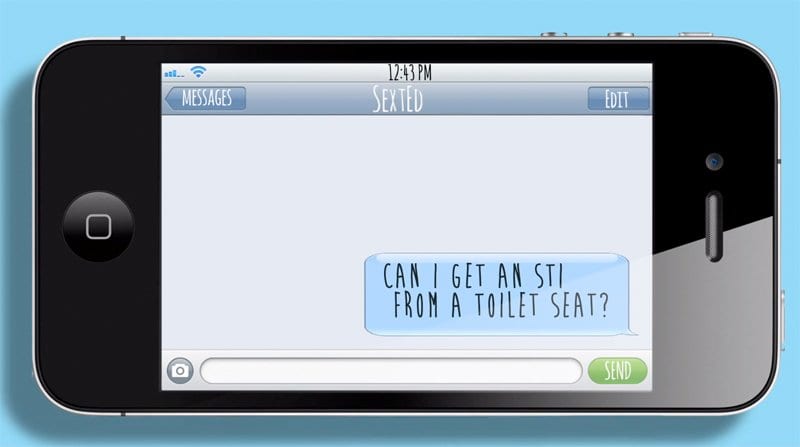Question: “Is it better to wear two condoms instead of one?”
SextEd answer: “Nope, two condoms actually create more friction and make the condoms more likely to tear. One condom used properly is best.
Teenagers with similar burning sexual-health questions have a new resource at their disposal – one that is centred on a staple of modern life: the cellphone.
Organizers of the service, titled SextEd, are encouraging teens in the Montreal area to text in any and all questions. Those who do will receive a response from trained volunteers within 24 hours.
“There’s been a push to find more creative and effective ways to reach youth,” says Melissa Fuller, the SextEd project assistant. “Cellphones seemed like a really obvious way.”
Texts arrive anonymously to the SextEd database – an important feature for those who blush when talking about sex. And if a question warrants a lengthy answer, the volunteer will link the response to the SextEd website, where the question is answered in detail.
“[On the SextEd site] they can find access to a reliable resource on their topic, rather than having to Google it and get who knows what,” Fuller says.
The SextEd initiative is part of AIDS Community Care Montreal’s (ACCM) Education for Prevention mandate, which was given greater significance in 2005 when the province scrapped mandatory sex ed in high schools.
Recent statistics from Quebec also highlight the importance of such education initiatives: between 2007 and 2011, the rates of gonorrhea and chlamydia rose 40 percent and 45 percent, respectively, among 15- to 24-year-olds, while syphilis rose a staggering 576 percent.
“Once you take [sex ed] out of any sort of mandatory education system, if you’re not learning it at a certain age, you’re probably not going to learn that much about it afterwards,” says Kimberly Wong, an HIV educator at ACCM. “There’s very little motivation for someone to learn about sexual health on their own, unless they have their own natural curiosity or they’re worried about something.”
In place of mandatory sexual-health education classes, teachers are encouraged to incorporate sex ed into their lessons, regardless of the subject they teach or the training they have.
“If you’re a history teacher and suddenly the government is telling you to start teaching sex ed in your classroom . . . how do you do that?” Wong asks.
In response to that question, local community health organizations like ACCM and Head & Hands stepped in with their own initiatives to help teachers. ACCM’s Teachers’ Sex Ed Toolkit provides free, ready-made lesson plans for teachers, and Head & Hands’ Sense Project allows teachers to bring in trained volunteers to provide sex-ed lessons for their classes.
Despite these resources, there is no guarantee that students will receive the information they might need. Teachers may be uncomfortable teaching sex ed or they may not use the resources at hand. Wong says it’s important for teachers and students to educate themselves.
“Sex is something that pretty much affects everybody at some point in their life, and it’s something that you shouldn’t go into with a lack of knowledge,” she says.

 Why you can trust Xtra
Why you can trust Xtra


